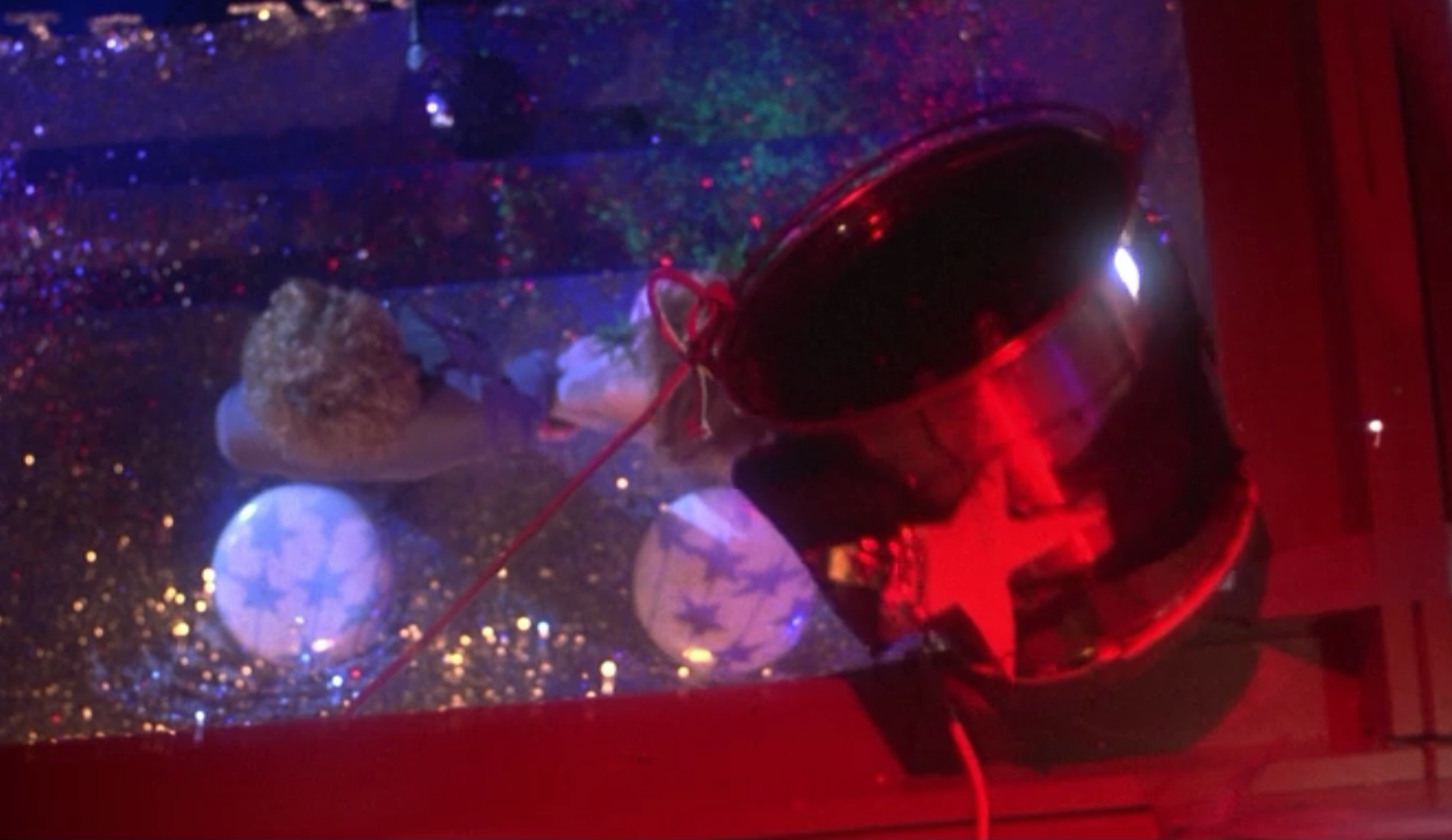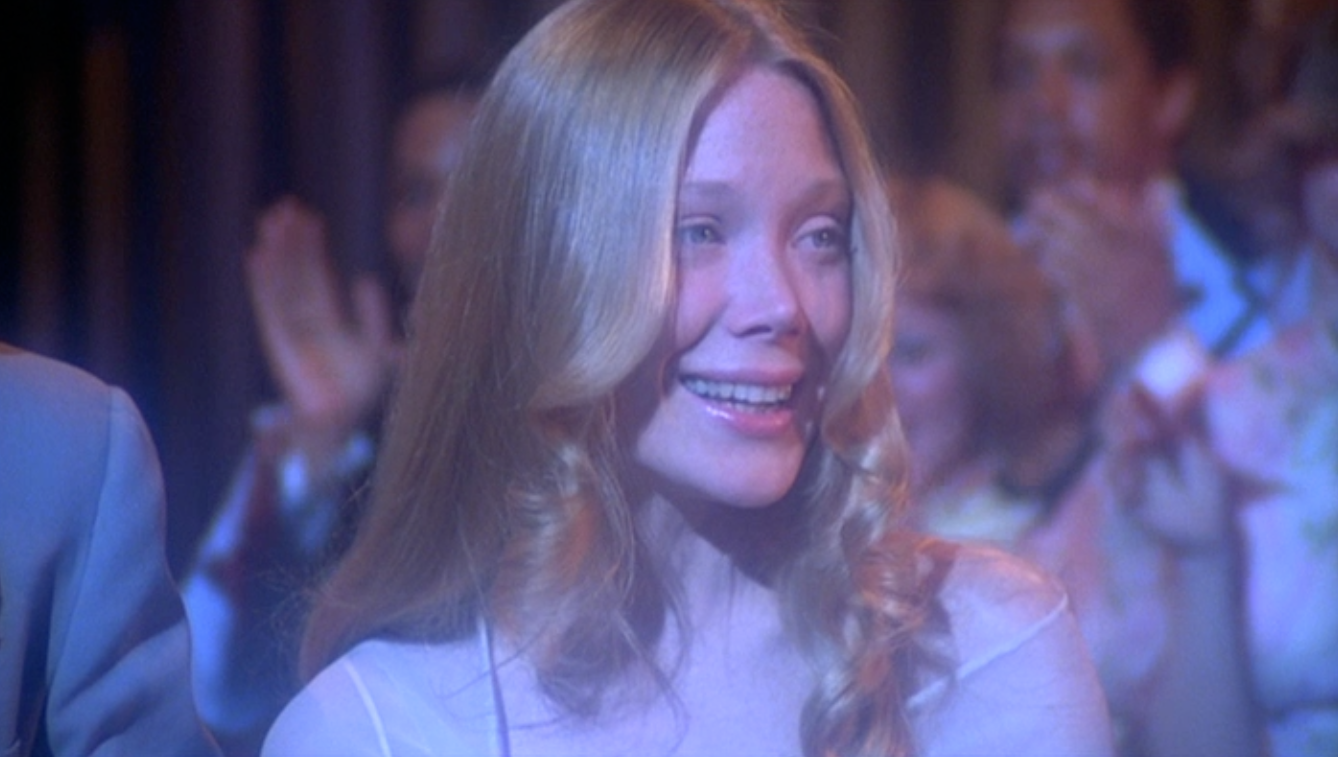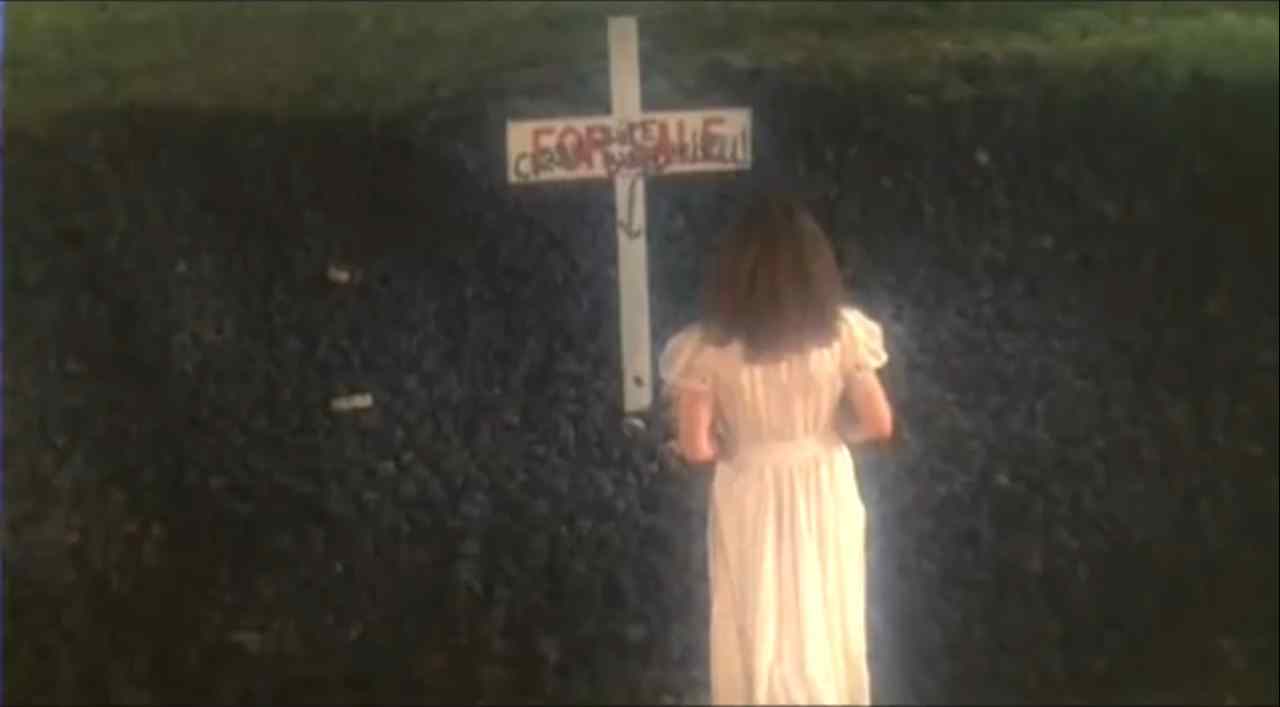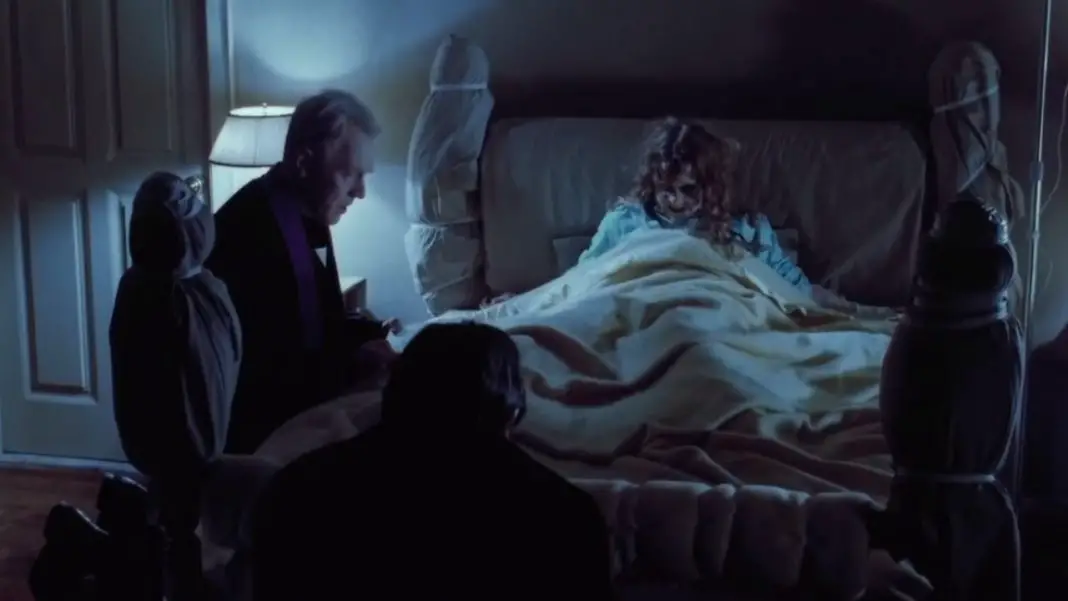Halfway through writing his debut novel, convinced that he knew nothing of the female experience, a writer threw the entire manuscript into the trash. The writer was Stephen King and the novel was Carrie. It was not a hit at first. But people, curious enough to check it out, began to read it and then began to talk about it. It was a book that spread by word of mouth. And it was not a hit until it arrived in paperback, really. That’s when Stephen King knew he’d made it. Even still, Carrie found success before its author. The book became a hit and a film became an inevitability.
Brian De Palma, a master of horror and suspense in his own right, was brought in to direct the film. But he actually fought pretty hard to direct it, before the book was very popular. He knew as soon as he read the book that he could make a film out of it.

Carrie is about a lot of things, but in the 1970’s, a lot of focus fell on what was then called the “women’s movement.” In which feminism was on the rise and women were speaking out more and more, demanding equality, essentially. And the conservative men, so used to one way of life, were terrified. So people have a tendency to mistake Carrie as a movie about “what happens when we give a woman too much power?” And that’s not really what the film is about.
The power is already there. Carrie’s ability has been inside of her since birth. It is beginning to manifest itself in ways that are harder to ignore, now that she is coming of age. But it was always in there. It was always boiling up, underneath the surface, and now she is growing up. She is a teenager, hormones are kicking in and this part of her is as out of whack as anything else.
 This is a movie about repression, about trying to suppress people; their opinions and their voice. Carrie starts out as a shy, quiet kid. And even still, even when she is not saying anything, people are trying to get her to shut up. Carrie does not have a voice of her own and people are still trying to take it away from her. She only begins to stand up for herself as her power begins to develop and strengthen.
This is a movie about repression, about trying to suppress people; their opinions and their voice. Carrie starts out as a shy, quiet kid. And even still, even when she is not saying anything, people are trying to get her to shut up. Carrie does not have a voice of her own and people are still trying to take it away from her. She only begins to stand up for herself as her power begins to develop and strengthen.
Carrie’s telekinesis is best served as a metaphor for teenage sexuality, especially given the film’s opening. As she comes into her own, this power grows and grows until it explodes. That’s the idea. You can only push someone so much before they push back, in this case tenfold. It’s a nightmare for Carrie in a way that no one around her can understand. So at the end of the movie, Carrie is forcing other people to experience things the way she experiences them.
High school is Hell, and that is the number one thing that Carrie, as a story, is trying to express. Everything is heightened, everything feels like the end of the world, like life or death. And, in Carrie, everything is. Carrie is an inverted fairy tale in which Cinderella becomes the evil queen. The meek girl gets a chance to become a princess. She is invited to the ball, she goes, and she burns it down.
 Carrie is not about the fear of female power. Rather, it embraces that power. Attempts to repress anything always make the situation worse. Carrie is the victim until she isn’t. Even when she strikes back, it’s an act of self-destruction as much as it is an act of revenge.
Carrie is not about the fear of female power. Rather, it embraces that power. Attempts to repress anything always make the situation worse. Carrie is the victim until she isn’t. Even when she strikes back, it’s an act of self-destruction as much as it is an act of revenge.
Of course, the major force of repression in the story is Margaret White, one of the most over-the-top, staunchly repressed characters in all of fiction. Margaret White, in the novel, tries to kill her daughter the moment that she is born, the very first time she lays eyes on her. This is crucial to the development of the character, so at least it is hinted at in the finished film. Margaret White loves her daughter, but she also hates her. And she does not simply hate Carrie for her sinful powers, she hates her because she was born. She hates Carrie because she represents a single moment of weakness in Margaret’s life. And, yes, she hates Carrie because she is a woman.
Nearly every line of dialogue that Margaret has in the film supports this. Margaret is the voice of Christian Fundamentalism, preaching repression because she is as repressed as anyone could ever possibly be. Margaret White does not allow herself to feel desire, she does not feel a fully-developed concept of love, or even of sadness and pain, and that is why destruction of both Carrie and herself is so important to her.
 Margaret sees Carrie’s telekinesis as the excuse to do what she has always wanted: to kill her child. Her desire to murder Carrie is the only truthful, real desire that Margaret has ever actually felt. It’s the only real thing she has ever wanted for herself, other than her own death.
Margaret sees Carrie’s telekinesis as the excuse to do what she has always wanted: to kill her child. Her desire to murder Carrie is the only truthful, real desire that Margaret has ever actually felt. It’s the only real thing she has ever wanted for herself, other than her own death.
She never asked to be born. She never asked to be alive and feels nothing but resentment for the fact that she is. Her uber-conservative, devout Catholic lifestyle is in vain hope that if she shows enough devotion to God, He will simply come down and pluck her up and take her away. Because the world disgusts her and she is disgusted at herself for simply being a part of it, no matter how hard she tries to close herself off. When Margaret dies, when Carrie crucifies her and puts the final knife in, it is the first and only time that Margaret smiles in the movie and it is probably one of the only times she has smiled in her whole life. Because she has escaped this Godless world and these Godless times. She is finally going where she’s always wanted to be.
Ultimately, while Carrie can exact her revenge and can build up the strength to fight back, she cannot survive the experience. Because the damage is too severe. There is no recovery from her life. Because the way society has treated her, whether it be high school society or otherwise, cannot be overturned. It can’t simply be pushed over and restarted. SO Carrie’s big moment at the end is also self-destructive. Many people do not understand that Carrie doesn’t simply die because she can’t escape the house. That’s not it at all. She drops the house down on top of herself.
The ending, like the rest of Carrie, is very tragic and bittersweet. Because there is no monster to overcome. The problem lies with humanity itself. But Carrie at least expresses a point that repression is a destructive force that can only lead to even more destruction, whether it be emotional or physical. It’s always one of the two. The movie shows, on a metaphysical scale, what trying to shut down womanhood and femininity actually does to a young girl, in a hope (for the 1970’s) that women would perhaps be treated better and taken seriously. And on an even more general note, hopes to change the way bullies may treat outcasts. Carrie was never a movie made to suppress the woman’s movement. Carrie was the women’s movement.





